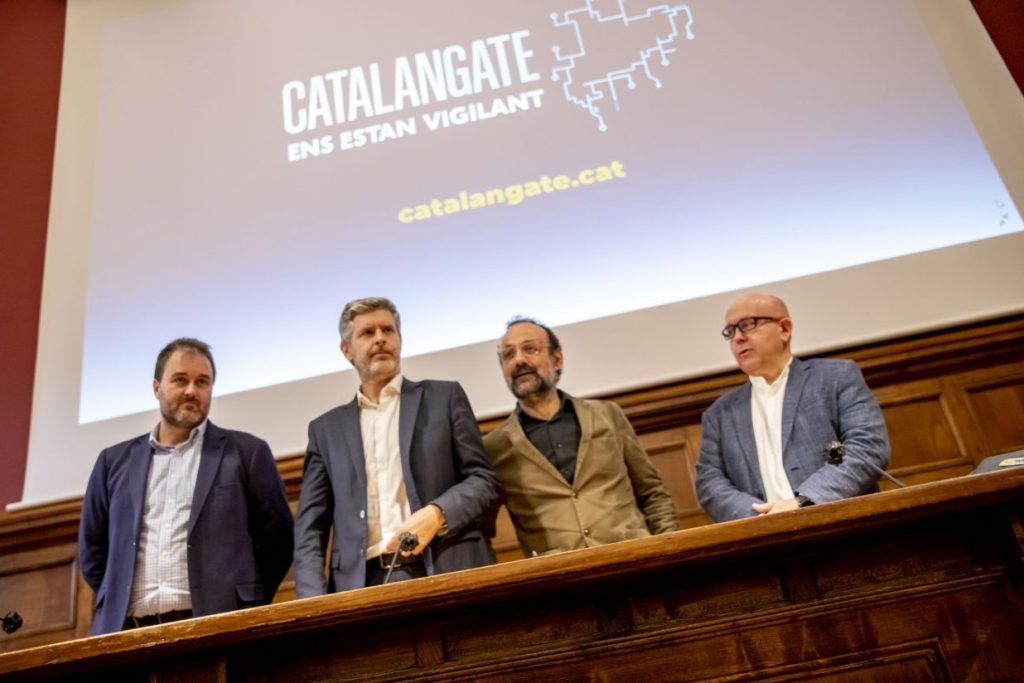09.05.2022 - 18:49
|
Actualització: 13.06.2022 - 10:12
“Living in a country like Spain, you have to assume certain risks. I have always been cautious,” Gonzalo Boye, a Chilean lawyer who represents a number of prominent pro-independence figures, told Catalan News in early May. “But nowadays it is quite clear that what I cannot say in person with a client I better not say because it is my duty to grant them their secrecy.” Boye is the lawyer of Carles Puigdemont, the Catalan president at the time of the 2017 referendum deemed illegal by Spain, as well as other top Junts per Catalunya pro-independence politicians.
He is one of the over 60 attorneys, politicians, activists, and their close associates with ties to the pro-independence movement whose phones were targeted with government-grade Pegasus spyware – in his case at least 18 times – which controls devices remotely, as was first reported by University of Toronto research group Citizen Lab and The New Yorker on 18 April. This, the so-called Catalangate espionage scandal – the biggest documented phone hacking cluster of its kind – and its aftermath have deepened the rift between authorities in Barcelona and Madrid and have been the subject of countless headlines over the past few weeks.
“We’re fighting [Spain] in court and we just discovered that they know everything that’s in our phones,” Boye complained. Andreu Van den Eynde, also a lawyer, represented high-ranking Esquerra Republicana politicians who were tried for rebellion in Spain’s Supreme Court for organizing the independence referendum. He found out that he had been spied on during the spring 2020 Covid lockdown in Barcelona, months after they were sentenced. “This is really shocking. Our privilege with our clients has been compromised,” he said. After working as a criminal defense lawyer for 25 years, he said it felt strange to be the victim for a change. “I’m not feeling well knowing that my whole family has been tracked and spied on with this technology.”
Spying in Brussels
Although Van den Eynde’s phone was hacked in Spain, other Pegasus security breaches took place abroad. “I was spied on during the period that I was representative of the Catalan government to the EU in Brussels,” Meritxell Serret, an MP in the Catalan parliament for Esquerra, said. “The fact that I was abroad in Brussels, and that my phone number was Belgian, I thought this was a safe situation for me.”
Elisenda Paluzie, who heads the pro-independence civil society group Catalan National Assembly (ANC), on the other hand, explained that she felt vindicated by the Citizen Lab report as she had known that she was being spied on for years. “An expert checked my mobile in 2018” as a personal favor, Paluzie told Catalan News. “For professional reasons, he couldn’t do anything about it, so I couldn’t go to a court of justice,” as he wished to remain anonymous. “Now I am happy,” she said. “We will be able to take action and do something about it.”
For Paluzie, taking action means demanding justice for the sophisticated and highly invasive phone hackings she, like other victims, is convinced Spain is behind. Citizen Lab also believes there is “strong circumstantial evidence” to suggest entities within the Spanish government are responsible for the espionage. “We believe that the case is sufficiently serious that warrants an official and independent investigation,” senior Citizen Lab researcher John Scott-Railton said in a press conference a day after the news broke. “How was the hacking authorized? What was the legal framework that governed the hacking and what judicial oversight applied?”
Admission of guilt
The Spanish government initially denied any involvement in the matter. Days later, Spanish defense minister Margarita Robles questioned the legitimacy of the New Yorker’s reporting and, surprisingly, said she had never heard of the magazine. “What else should a state should do when someone declares independence?” she then asked in what was interpreted by many as an admission of guilt. As of yet, however, the Spanish intelligence agency (CNI) has only admitted to spying on 18 of the more than 60 known victims, all of which they say was done with Supreme Court authorization.
And although the phone hacking victims Catalan News spoke with said they have actively sought to not let this situation change how they live their lives and interact with others, Van den Eynde warned of a much bigger potential problem: “If we maintain this scenario where states are not held accountable for what they do, then everyone can be a victim of state espionage.”


